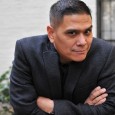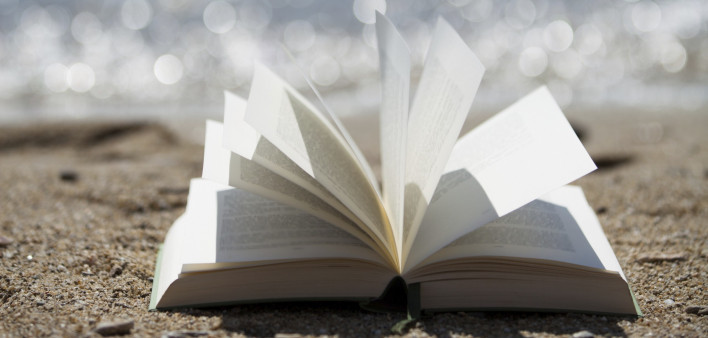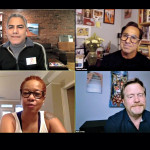I am writing this from Prague. It’s a beautiful city. I’ve been here before, but that was a long time ago. This time I have a lot more tools to navigate and enjoy myself.
I have not written or read anything in a bit. And I’m feeling lazy, as if I have let things go for too long. What about this deadline or that project? Am I behind?
I’ve found that I’m not particularly good at taking time off. There are some people who are brilliant at doing nothing. I am not one. I used to be proud of this. As I’ve gotten older, I’m just sad by my need to get things done.
Because, in the end, who am I doing this for? When does the focus get to be about me?
For decades, I did drugs and drank a lot just to stop working. Why do I need to push myself like that? Isn’t there an easier way to take a break?
We talk about self-care a lot in the HIV space. Non-profit organizations and public health agencies have a lot of rhetoric around mental health. Amongst friends, we complain about how much we labor and how we need to take a vacation. But what do we do about it?
At my current job, when I say that Thursday morning is my therapy time, they generally say - after an awkward pause, “oh, I didn’t know” and back away. Going to see a therapist is not considered a regular and routine event for most Americans.
I worked in non-profits for almost 20 years, and did a stint in government for five. In the HIV non-profit world, a 40-hour work week is a suggestion or a joke, especially as one moves up the ladder. At one organization, I held three full-time jobs (which was hysterically printed in our annual gala program – causing much funder confusion). This is not uncommon. And we do it: For. The. Cause.
We expect people who do social justice work to never take a break, never be off the clock, to represent the organization and “the cause” all the time. My ex was fired from his job at an HIV organization because he was drinking at Pride. I get trolled by people online who try to demand my attention and who get angry when I don’t give it to them.
To be clear: my HIV advocacy is largely volunteer. Most of my work with the US People living with HIV Caucus - like AIDSWatch, protesting anti-immigrant and anti-trans legislation and policies, representing Civil Society at UNAIDS, engagement with PLHIV groups across the country, even writing this blog(!) - is stuff I do outside of my employment. My actual job is to teach courses in the semester and write an article each year for an academic peer-reviewed journal.
I’m lucky. I am a professor at a mid-sized public university in Southern California. I juggled to earn a doctorate while I was working at non-profits. When I chose to enter academia, I was able to get a tenure-track position (which is a whole other battle right now in the universities) and I’ve been (mostly) successful at it.
We talk about self-care but we don’t unpack it enough. What would it feel like to do something for you? What does taking a break look like?
We aren’t encouraged enough to think about these questions. As people living with HIV, we are taught to go to medical appointments and take our pills. What else do we want out of our lives?
My friend Barb Cardell is a brilliant chef. Before HIV, she led a brigade at a top restaurant in New York City. She’s spent the last two decades as a largely-unpaid HIV advocate. I’ve rarely met someone who works harder in the field. When she talks about throwing dinner parties or making chocolates for people for Valentine’s, I recognize that this is part of her self-care. These acts touch a part of her that needs to be sustained for Barb to do the amazing things she does.
It’s easy to look at someone’s self-care and think of it as indulgence. It’s more difficult to respect people’s time and space.
I’m not saying we don’t hold our leaders accountable. We still need to do that. But we also need to make space for our own needs.
What do you do for some quiet in your day? When do you feel most like you? Not the you that speaks out at meetings or attends conferences or makes the signs for the protest (which is the you that I know and respect). What about the you that was there before HIV?
I have to remind myself that getting things done is another way of not paying attention to me. Who am I after the work gets done?
I do recommend a few things:
- Work on the living space. I am terrible at this but we do need to think about how we want our homes to feel for us. Do you want a sanctuary? A play space?
- Social media breaks at regular, routine parts of the week. Hide the apps on your phone if you have to. I do it on Saturday.
- E-mail breaks every day. I do not put my work e-mail on my phone unless the job pays part of my phone bill. I find it ridiculous that people expect you to respond to e-mails 24/7.
- Meditation or some other activity that takes you out of your “must do” mode. I used to meditate once a week, but I have a hard time with that now. So I settle for 5 minutes a day – I’m trying to extend it but it’s difficult.
- Therapy. I go once a week. It’s sometimes the one time of the week where I know someone will focus on my needs.
- Physical activity to get out of your head. I try to go to the gym just for an hour on treadmill a few times a week.
Some people might need to walk in nature. Others might need yoga or spending time with family or a religious service. For me - I love to leave the US. Very few of us can afford to do a full list of our self-care needs (beach resorts, mani/pedis, massage and sex work - to name a few). Most of what I listed is free. All it requires is to prioritize some time for us. After all, what kinds of lives are we advocating for in HIV?
Right now I am writing this from Prague. I am enjoying good food, observing people and talking with strangers. I go to comic book stores and sit in cafes and take selfies in front of buildings, signs and statues. I limit how much of this trip I am putting on social media.
We are people living with HIV - let’s get to the living.








1 Comment
1 Comment